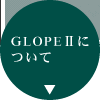予定表 -詳細情報-
| 件名 | LS 籠谷公司氏 |
| 開始日時 | 2012年 7月 10日 (火曜日) 12時15分 (GMT+09:00) |
| 終了日時 | 2012年 7月 10日 (火曜日) 12時50分 (GMT+09:00) |
| 場所 | 1号館401教室 |
| 詳細 | GLOPE II ランチタイムセミナー 【報告者】Koji Kagotani (Assistant Professor at Trinity College Dublin) 【タイトル】Perception Gap and Strategic Conflict Avoidance 【場所】1号館401教室 【概要】 The theory of strategic conflict avoidance (SCA) argues that a state is more likely to avoid its adversary that is less likely to compromise. Most of the SCA studies assume that leaders are more likely to divert public attention towards foreign crisis when they confront domestic distress, which explains the degree of resolve. However, the SCA framework addresses only the correlation between the initial belief on resolve and conflict behavior. Once the challenger initiates a crisis, the challenger's actual action induces the target to update its belief on the challenger's resolve. When the target observed the challenger's unexpected actions, this perception gap might change the target's beliefs and behavior unequally. Thus, we advance the SCA research by incorporating such perception gap into the analysis. We focus on the U.S. and its rivalries in the period 1950-2000. We test the US leaders' diversionaly incentive behind US challenges and estimate the initial beliefs on US resolve. We explore how perception gap can influence the target behavior. The results show that surprise by US unexpected challenge can induce the target to compromise. This helps for examining the standard signaling model and for understanding the effectiveness of US military intervention. * The talk will be given in English. |
| カテゴリー | 政治経済学基礎セミナー・ランチタイムセミナー |








